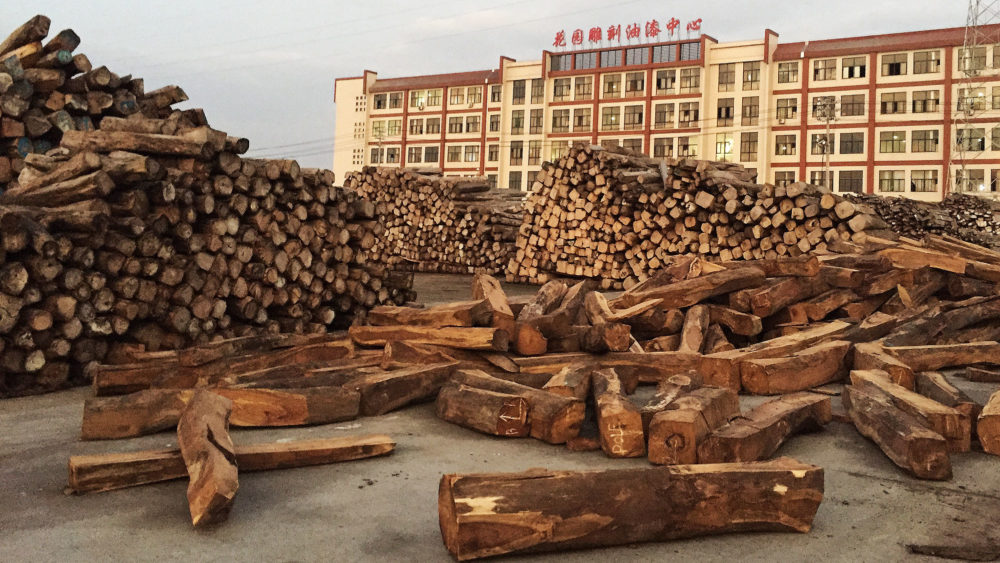Stacks of rosewood at a timber market in Dongyang, China.
21 December 2020
The Convention on International Trade in Endangered Species of Wild Fauna and Flora (CITES) banned large scale exploitation of rosewoods in 2017. Rosewood may take more than 100 years to mature. Illegally traded rosewood is far more than ivory, rhino horn, and pangolin scales put together.
Rosewood is prized as a tone wood, responsible for a characteristic resonant tone in everything from guitars and cellos to clarinets. Following the 2017 restrictions, the musical instruments industry lost tens of millions of dollars in sales. The travelling orchestras feared their instruments would be seized at international borders. So they appealed to CITES to exempt musical instruments from the ban. CITES committee lifted the ban in August 2019.
Fragrance and smooth finish makes rosewood highly desired in the furniture industry. There is a strong demand for high-end rosewood furniture in China, where a bed made of high quality rosewood may cost as much as $1m. Traditionally rosewood came to China from South East Asia. But now the stock has been exhausted there. So China is looking for other sources.
Namibian government leased land to political elites and war veterans as settlement farms. These land had a rich source of rosewood. The farm leaseholders could have made as much as US$1.5 million per year from selling the wood illegally. OCCRP found more than a dozen stockpiles of timber along the routes the loggers use. The stockpiles are run by two Chinese-fronted companies. The exports are declared at just a small fraction their true value, leading to vast sums being lost in uncollected tax revenues. The pockets of Namibia’s ruling South West Africa People’s Organisation party elites have their pockets lines so that the exports can go unhindered.
On the other hand what is the use of keeping the rosewoods reserves while the country needs more resources for development. The exports bring in foreign exchange into the country for development. Only thing is that Namibians are not getting the maximum out of these exports because of political corruption.
OCCRP reported.















